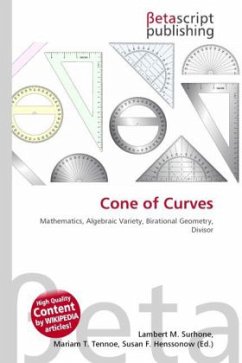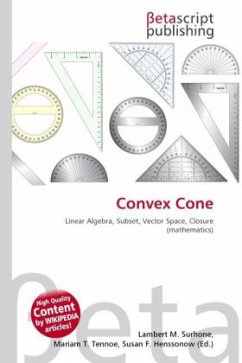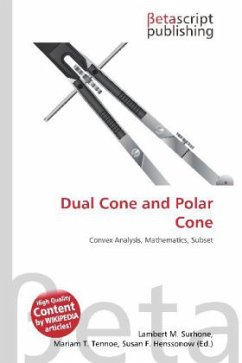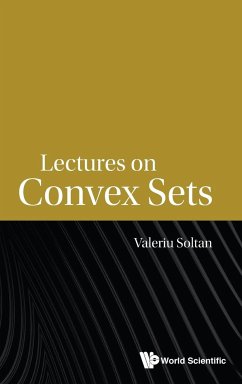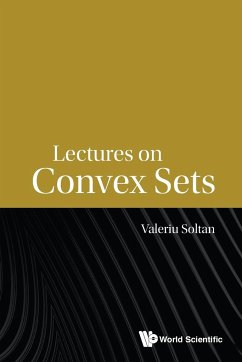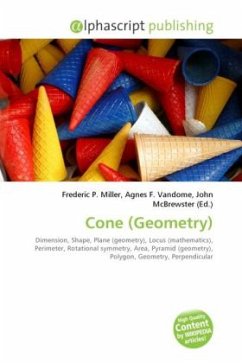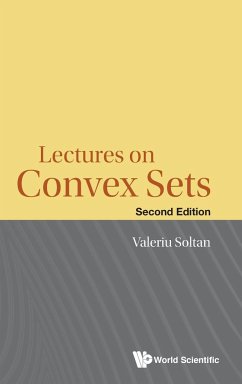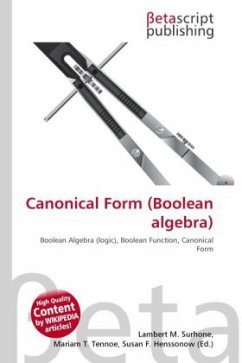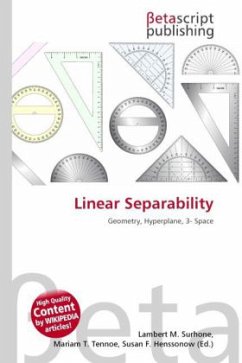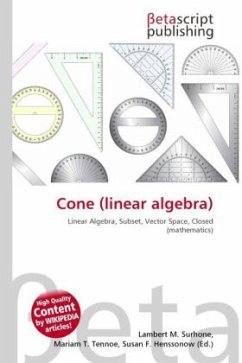
Cone (linear algebra)
Versandkostenfrei!
Versandfertig in 6-10 Tagen
26,99 €
inkl. MwSt.

PAYBACK Punkte
13 °P sammeln!
High Quality Content by WIKIPEDIA articles! In linear algebra, a (linear) cone is a subset of a vector space that is closed under multiplication by positive scalars. In other words, a subset C of a real vector space V is a cone if and only if x belongs to C for any x in C and any positive scalar of V (or, more succinctly, if and only if C = C for any positive scalar ). A cone is said to be pointed if it includes the null vector (origin) 0; otherwise it is said to be blunt. Some authors use "non-negative" instead of "positive" in this definition of "cone", which restricts the term to the pointe...
High Quality Content by WIKIPEDIA articles! In linear algebra, a (linear) cone is a subset of a vector space that is closed under multiplication by positive scalars. In other words, a subset C of a real vector space V is a cone if and only if x belongs to C for any x in C and any positive scalar of V (or, more succinctly, if and only if C = C for any positive scalar ). A cone is said to be pointed if it includes the null vector (origin) 0; otherwise it is said to be blunt. Some authors use "non-negative" instead of "positive" in this definition of "cone", which restricts the term to the pointed cones only. The definition makes sense for any vector space V which allows the notion of "positive scalar" (i.e., where the ground field is an ordered field), such as spaces over the rational, real algebraic, or (most commonly) real numbers.




